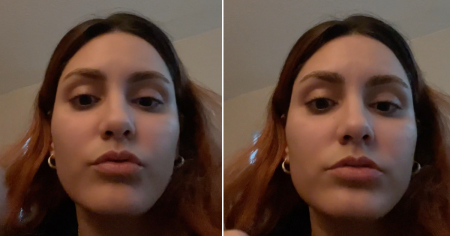A Cuban, known on TikTok as @guzman8798 and residing in the United States, sparked a firestorm on social media with his response to a comment that questioned his stance on the sanctions against Cuba and their impact on the families on the island. It all started with a video where Guzmán expressed sorrow that some Cubans living abroad supported measures like the remittance blockade, stating: "Hey, are you forgetting where you came from? How is your family doing over there, who depends on you?"
In response to this statement, a user commented: "And you forget that the ones benefiting are the dictators because families are getting worse and worse," which led the creator to respond emphatically in a new video: "No ma'am, I don't forget anything, but it seems to me that making one's family go hungry is not the way to bring down a dictatorship that has lasted for so many years. There are 10,000 other ways; the problem is that we have become accustomed to words and not actions."
The video has accumulated over 1,600 likes and surpassed 500 comments regarding the effectiveness of the sanctions against the Cuban regime and their impact on the people. Most users supported Guzmán, expressing similar opinions: "A respectable Cuban with family in Cuba will never agree to let his family go hungry"; "The people suffer while the fat cats continue to live their sweet lives"; "I will not let my mother and my children go hungry because of any law or dictatorship."
Others, however, questioned his words, asking for more clarity on his "10,000 ways" of fighting: "What are those ways? Enlighten us"; "We've been enduring this punishment for 65 years, what is different now?". Some also recalled that the sanctions have not yielded results in decades: "No one is more forgetful than Cubans. Have you already forgotten that before nothing could be sent and the dictators remained the same?".
The conversation also shifted to criticisms of those who support the restrictions. "Most of those who back these ideas don't have family in Cuba or don't care"; "It's easier to justify not helping your own with political arguments," were some of the notable comments.
Guzmán98 actively interacted in the comments, expressing gratitude for the support and pointing out: "The people always pay the consequences, not the dictatorship. There are no more mambises or Martí."
Guzmán's video has once again brought to the forefront a sensitive issue for the Cuban diaspora, where the struggle for change on the island confronts the dilemma of how to support family members without bolstering the regime.
Frequently Asked Questions about Sanctions on Cuba and their Impact on Families
Why do some Cubans abroad oppose the suspension of remittances to Cuba?
Many Cubans abroad oppose the remittance blockade because they believe that these measures directly harm their families on the island, who depend on this money to survive. They argue that the blockade has not weakened the regime, but has indeed increased the economic difficulties for the population.
What other forms of resistance against the Cuban regime are proposed aside from sanctions?
Guzmán, the creator of the viral video, suggests that there are "10,000 other ways" to fight against the regime, but he does not specify what these alternatives would be. Many users on social media are asking for more clarity on these proposals, as they believe that the sanctions have not been effective in the past.
How do economic sanctions affect Cuban families?
The economic sanctions primarily affect Cuban families by limiting access to basic resources and remittances. This increases the economic burden for ordinary Cubans, while the regime continues to find ways to maintain its grip on power, according to the views of many in the diaspora.
What is the emotional impact of these policies on the Cuban diaspora?
The emotional impact on the Cuban diaspora is significant, as many feel caught between supporting their families and not wanting to strengthen the regime. The dilemma causes anguish and debate among Cubans outside the island, who are forced to make difficult decisions about sending financial aid.
Filed under:





